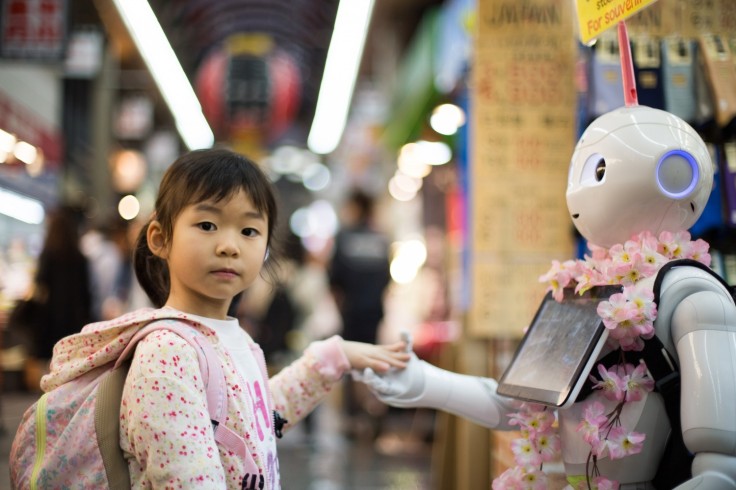
Introduction
In games, a timeless question continues to intrigue us: Who reigns supreme, humans or machines? The debate has captivated our imaginations for decades as technology has evolved and pushed the boundaries of what's possible.
Artificial intelligence (AI) plays a pivotal role in game evolution. According to ExpressVPN, as AI continues to advance, utilizing games such as Gran Turismo, Minecraft, and StarCraft for AI training can pave the way for practical, real-world applications, ranging from autonomous driving to the management of business operations.
As we delve into the fascinating gaming world, we'll explore the strengths and weaknesses of human players and artificial intelligence (AI), attempting to answer the age-old question: Who is better at winning games?
The Rise of Machines: AI's Dominance in Chess
One of the most iconic showdowns between man and machine occurred in chess. Deep Blue, IBM's supercomputer, famously defeated chess grandmaster Garry Kasparov in 1997. This remarkable event in history marked a turning point in the man vs. machine saga, showcasing the immense computing power and strategic capabilities of AI.
Chess - A Battle of Wits
Chess involves strategy, meticulous planning, and foreseeing future moves. Players must engage in forward-thinking, anticipating their opponent's actions and adjusting their strategy accordingly, often contemplating several moves in advance. While humans possess intuition and creativity, machines like Deep Blue can analyze countless possibilities within seconds, making them formidable opponents.
The Human Advantage: Creativity and Intuition
While machines excel in games that require brute computational force, humans have unique traits that set them apart. Humans have proven their superiority in games like Go, where intuition and creativity play pivotal roles. The complexity of Go stumps most AI, as it demands an understanding of abstract concepts and the ability to see the bigger picture.
Go - A Game of Intuition
Go is a traditional board game from China, where players place black and white stones on a gridded board. The simplicity of its rules masks its extraordinary complexity. Unlike chess, Go's branching possibilities make it challenging for AI to calculate every move effectively. Human intuition and creativity shine in this domain.
The Role of Practice and Learning
Both humans and machines benefit from practice and learning. Humans can adapt, learn from their mistakes, and refine their strategies. On the other hand, AI can be trained to improve its performance through machine learning algorithms and exposure to vast datasets.
The Human Touch: Emotional Connection and Sportsmanship
One significant aspect where humans surpass machines in gaming is the emotional connection and sportsmanship they bring to the table. When humans compete, they often form bonds with their opponents, share in the thrill of victory, and learn from the agony of defeat. This emotional aspect adds depth and richness to the gaming experience that AI lacks.
Emotional Engagement
Humans experience various emotions during gameplay, from excitement and anticipation to frustration and satisfaction. These emotions make the gaming experience more immersive and memorable. Whether it's the sense of camaraderie when playing with friends or the heightened tension of a high-stakes match, emotions play a vital role in the gaming experience.
Sportsmanship
Humans also bring a sense of sportsmanship to gaming. They follow established rules, respect opponents, and often exhibit good sportsmanship, even in the face of defeat. This ethical dimension of gaming is a testament to the values and principles that humans uphold in competitive environments.
AI's Unwavering Consistency
In contrast, artificial intelligence offers an unparalleled level of consistency in gaming. AI doesn't get fatigued, distracted, or emotionally affected by wins or losses. This unwavering consistency can be a double-edged sword. While it ensures that AI performs at its best at all times, it can also make matches feel mechanical and devoid of the human element.
Precision and Reliability
AI's ability to execute actions with pinpoint accuracy and reliability is a significant advantage. AI's consistency can make it a formidable opponent in games where split-second decisions are crucial. Whether planning in a first-person shooter or executing complex strategies in a real-time strategy game, AI can maintain peak performance.
Lack of Emotional Connection
However, the absence of emotional connection and sportsmanship in AI can lead to a less fulfilling gaming experience for some. While AI may be a challenging adversary, it cannot share in the emotional highs and lows of the game, which many humans find integral to their enjoyment of gaming.
The Future of Man vs. Machine in Gaming
As technology advances, the line between human and machine capabilities in gaming blurs further. Developers are working on AI that can emulate human-like intuition and creativity, making AI vs. human matches even more intriguing.
Conclusion
There is no clear winner in the ongoing battle of man vs. machine in gaming. Both have their strengths and weaknesses. Humans contribute creativity, intuition, and adaptability, whereas machines provide unmatched computational power and precision. The future holds exciting possibilities as AI continues to evolve, challenging our perception of what's achievable in gaming.









